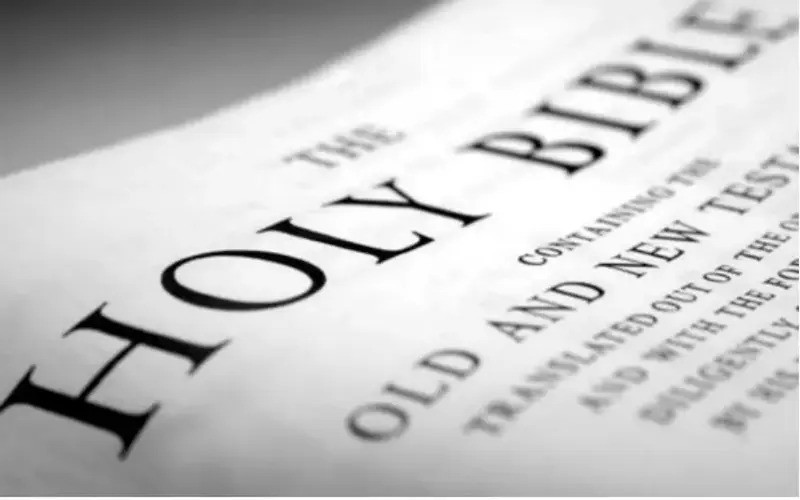Rediscovering America's Goodness: Stephen McDowell Interview
Sign up for a six month free
trial of The Stand Magazine!
Take a guess: On average, how long is the lifespan of a written national constitution? One hundred years? Fifty? Thirty?
The answer, according to three scholars at the University of Chicago Law School, may surprise you: 17 years.
While it’s the job of scholars to figure out why these governing compositions are so fragile, Americans must appreciate the durability of the U.S. Constitution, especially as the nation approaches its 232nd anniversary on September 17 and had its 243rd anniversary of the Declaration of Independence on July 4.
 Stephen McDowell (photo, right), historian and founder of Providence Foundation, is convinced that these founding documents have endured because they are based squarely on yet another document that has endured even longer: the Bible.
Stephen McDowell (photo, right), historian and founder of Providence Foundation, is convinced that these founding documents have endured because they are based squarely on yet another document that has endured even longer: the Bible.
In “Christianity and the Constitution” (See below.), McDowell quotes a prestigious literary journal of 1867: “The American government and Constitution is the most precious possession which the world holds, or which the future can inherit. This is true – true because the American system is the political expression of Christian ideas.”
In celebration of Independence Day, McDowell spoke to AFA Journal regarding these abiding ideas expressed in the nation’s core writings.
AFA Journal: What are the underlying beliefs or ideas encompassed in the nation’s founding documents?
Stephen McDowell: The power and form of the Declaration and the Constitution are biblical. Power being the underlying ideas that are reflected, and form, the structure of how our government was set up and flows out of those ideas.
The Declaration of Independence is America’s founding covenant. It declares why we became a nation. The Constitution is the bylaws of this new nation. So you have to look at them together.
The Declaration begins by saying “We hold these truths to be self-evident, that all men are created equal, that they are endowed by their Creator with certain unalienable Rights, that among these are Life, Liberty and the pursuit of Happiness.“
Now that statement is full of biblical ideas. First, the founders recognized that absolute truth exists. Right and wrong, moral and immoral, legal and illegal – these emanated from a Creator.
This is a foundational idea of our nation: there is absolute truth we can know, and it comes from the Creator. The founders declared that fact to be self-evident. And from that, flows the idea that any law contrary to God’s truth is no law at all.
Another important concept in our form of government is that the rulers, as well as the people, are subject to the laws. No man is above the law. We are a self-governing republic in which power emanates from the people, who themselves are under the Creator.
Therefore, our unalienable rights come from the Creator. Thomas Jefferson summarized those as the right to life, liberty, and the pursuit of happiness, a concept that in the modern mind means people being free to do whatever they want to do. But that’s not what the founders meant. The right to pursue happiness meant the right to be free to obey the will of God. So, if the government or other men keep us from doing God’s will, we have an obligation to change that form of government or take appropriate steps.
There are many more biblical concepts in the documents, including religious freedom, private property rights, and a just trial, to name a few.
AFAJ: How does providence fit into your understanding of America’s past, present, and future?
SM: The word providence means God’s superintendent care over His creation. God created everything. He is actively involved in His creation, in each of our individual lives, and in history. The Founding Fathers spoke about that over and over in regard to the colonies’ victory in the American Revolution. They also spoke of the Constitution as a miracle of God.
I love what historian George Bancroft said. He said the fact that God rules in the affairs of men is as certain as any truth of physical science. And that was the view of the founders when they wrote of their “firm reliance on the protection of divine Providence.”
But in that, we have a responsibility. Sowing and reaping works. However, there’s not anything that’s going to happen without God allowing or directing. John Quincy Adams put it this way. He said the duty is ours; the results are the Lord’s.
AFAJ: You say your mission is to “transform the culture for Christ.” In a pluralistic society, how do you defend that position?
SM: We live in God’s world, not in a made-up world of Karl Marx or Darwin or any other political philosopher.
God created it to function based upon a set of physical and moral laws. If we violate His laws, we suffer the consequence. The Bible teaches that, and history confirms it.
Christianity has brought great blessing to mankind. Benjamin Rush, the third most famous Founding Father – although most people today have never heard of him – said Christianity is the only true and perfect religion, and that in the proportion that we adopt its principles and obey its precepts, mankind will be wise and happy. And that doesn’t just apply to those who believe, but to the unbeliever also. That’s the reason that millions are trying to get into America – they want to benefit from the great fruit that was produced from the Christian faith.
But if we remove the Christian faith and its principles, then we’re going to get worse and worse fruit. That’s what’s been happening the past century.
Benjamin Franklin told Thomas Paine that people are spitting against the wind when they attack Christianity because through obeying God, we bring great freedom and liberty for all.
That’s one among many ways that I would justify the great need for ministries like ours, AFA, and others.
AFAJ: What does the American dream mean to you?
SM: The American dream is those foundational principles adhered to by the early founders. They were like seeds that produced great fruit. For example, the individual has value because he is created in the image of God.
So we need to protect man’s life, liberty, and property. We have a civil government to protect private property so that men can benefit from the fruit of their labor.
These ideas and others such as religious freedom and the right to a fair trial before a jury of our peers are unique in the history of man. These are some of the fundamental rights that make up the American dream.
AFAJ: Is it possible to restore America to a nation in which Christian ideals are dominant?
SM: Most certainly it’s possible because we can see many times in history that God has sent a great outpouring of His Holy Spirit to awaken the hearts of the people.
And yet, we have a role to play in that – teaching our children the truth of the gospel, being faithful in our biblical duties, growing in Christ-like character, participating in the Great Commission, and standing for biblical truth in our communities.
Yes, there is plenty of bad fruit and much of it is getting worse. But there is also a lot of good fruit – Christians who are being awakened, and that indicates to me that God is at work and has a plan. That gives me hope.
-----------------------------------------------
 Know our heritage
Know our heritage
A 2017 survey by University of Pennsylvania’s Annenberg Public Policy Center revealed that:
37% of Americans could not name a single right protected by the First Amendment.
Only 26% could name all three branches of government.
Only 33% could name any branch of government.
AFA has published a pocket-sized booklet containing the text of the U.S. Constitution and the Declaration of Independence, a great resource for all citizens. Order your copy afastore.net.
Recommended articles at providencefoundation.com
▶ Christianity and the Constitution
▶ Christian Ideas in the Declaration of Independence
(This article originally appeared in the print and online editions of the AFA Journal from July 2019 with the title "Rediscovering America's Goodness.")

Sign up for a free six-month trial of
The Stand Magazine!
Sign up for free to receive notable blogs delivered to your email weekly.



















